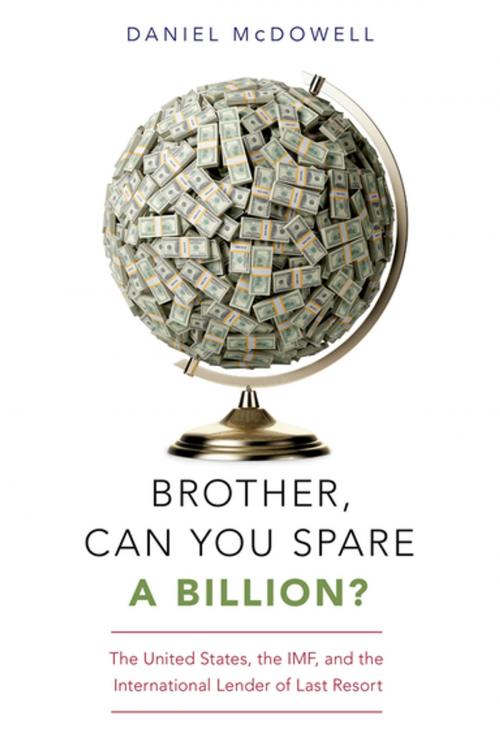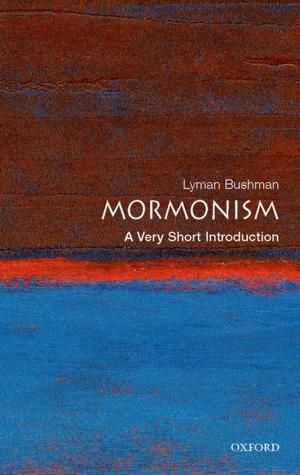Brother, Can You Spare a Billion?
The United States, the IMF, and the International Lender of Last Resort
Business & Finance, Economics, International, Nonfiction, Social & Cultural Studies, Political Science, Politics, Economic Policy| Author: | Daniel McDowell | ISBN: | 9780190605780 |
| Publisher: | Oxford University Press | Publication: | November 1, 2016 |
| Imprint: | Oxford University Press | Language: | English |
| Author: | Daniel McDowell |
| ISBN: | 9780190605780 |
| Publisher: | Oxford University Press |
| Publication: | November 1, 2016 |
| Imprint: | Oxford University Press |
| Language: | English |
Conventional wisdom says that the International Monetary Fund (IMF) functions as the de facto international lender of last resort (ILLR) for the global financial system. However, that premise is incomplete. Brother, Can You Spare a Billion? explores how the U.S. has for decades regularly complemented the Fund's ILLR role by selectively providing billions of dollars in emergency loans to foreign economies in crisis. Why would the U.S. ever put national financial resources at risk to "bail out" foreign countries? McDowell argues that the U.S. has been compelled to provide such rescues unilaterally when it believes the IMF's multilateral response is too slow or too small to protect vital U.S. economic interests. Through a combination of historical case studies and statistical analysis, McDowell uncovers the defensive motives behind U.S. decisions to provide global liquidity from the 1960s through the 2008 global financial crisis. Moving beyond conventional wisdom, this book paints a complete picture of how international financial crises have been managed and highlights the unique role the U.S. has played in stabilizing the world economy in troubled times.
Conventional wisdom says that the International Monetary Fund (IMF) functions as the de facto international lender of last resort (ILLR) for the global financial system. However, that premise is incomplete. Brother, Can You Spare a Billion? explores how the U.S. has for decades regularly complemented the Fund's ILLR role by selectively providing billions of dollars in emergency loans to foreign economies in crisis. Why would the U.S. ever put national financial resources at risk to "bail out" foreign countries? McDowell argues that the U.S. has been compelled to provide such rescues unilaterally when it believes the IMF's multilateral response is too slow or too small to protect vital U.S. economic interests. Through a combination of historical case studies and statistical analysis, McDowell uncovers the defensive motives behind U.S. decisions to provide global liquidity from the 1960s through the 2008 global financial crisis. Moving beyond conventional wisdom, this book paints a complete picture of how international financial crises have been managed and highlights the unique role the U.S. has played in stabilizing the world economy in troubled times.















